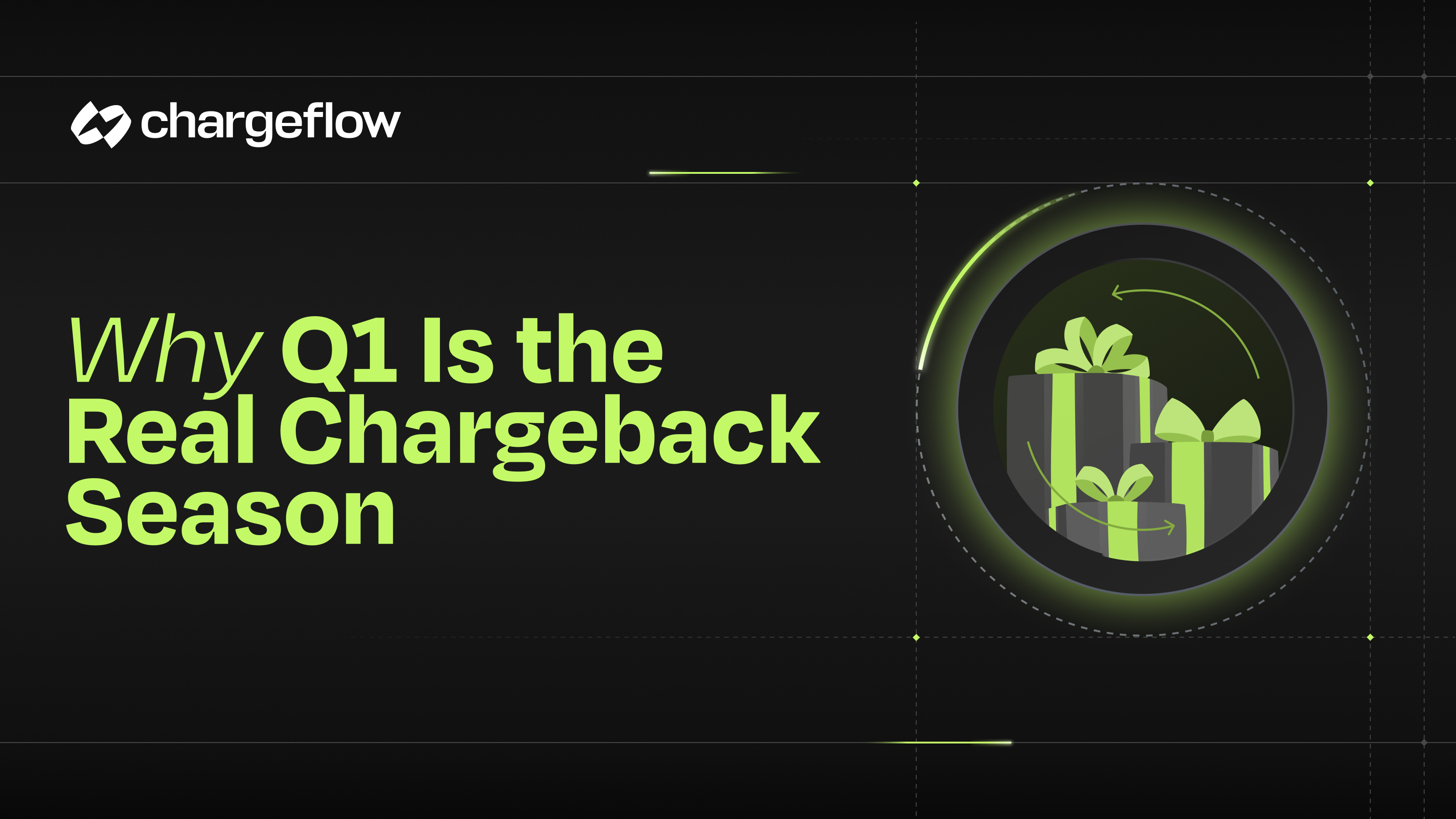Visa Chargeback Reason Codes (2024 Guide for Merchants)

Chargebacks?
No longer your problem.
Recover 4x more chargebacks and prevent up to 90% of incoming ones, powered by AI and a global network of 15,000 merchants.
Visa revamped its chargeback reason codes in 2018, reducing them into the groups: fraud, authorization errors, processing errors, and customer disputes.
Chargeback reason codes are numeric or alphanumeric identifiers banks and card brands like Visa, Mastercard, AmEx, and Discover use to categorize exact reasons for cardholder disputes.
Each chargeback reason code corresponds to a unique transaction dispute, such as unauthorized transactions, goods or services not as described, or payment processing issues. These codes help banks and card networks simplify chargeback processing.
Reason codes also help merchants formulate appropriate chargeback responses and recover lost revenue. Banks require sellers to dispute chargebacks according to the codes provided. More so, understanding the reason why chargebacks happen can help you prevent future cases.
Hence, we created the Ultimate Guide to Chargeback Reason Codes to help you understand how the leading card brands track and process chargebacks.
What are Visa Chargeback Reason Codes?
Visa chargeback reason code is a set of numbers and letters that financial institutions use to specify the causes of payment disputes on Visa cards. They help standardize the dispute process. When a customer disputes a bill on their Visa card, banks rely on Visa reason codes to decide whether or not to initiate a chargeback.
Chargeback reason codes also serve other essential benefits besides helping identify the reasons for transaction declined, filed chargebacks, or payment adjustments. For example, they help merchants, card networks, and banks track and analyze chargeback trends to make better decisions.
Categorizing disputes into specific codes gives card networks better oversight of chargeback incidents. It enables them to proactively adjust risk models and implement measures to uphold the integrity and reliability of the global payments ecosystem.
Why You Must Understand Chargeback Reason Codes
Chargeback reason codes seek to foster transparency in chargeback processing.
Unfortunately, there are no uniform chargeback reason codes across the networks. Each card brand has unique reason codes. Even though the principal function is to track and communicate the reason for disputes, such disjointed numerics often cause significant confusion for merchants.
Furthermore, chargeback reason codes do not always pierce the corporate veil of the cardholder’s true intent in filing a dispute. For instance, a bank may issue a Transaction Unauthorized chargeback when, in reality, the cardholder's sibling made the purchase, and the cardholder is using a chargeback to avoid paying for it.
The result? Businesses and banks use bad data for reporting and analytics. According to Mastercard: “When a friendly-fraud dispute is coded as genuine fraud, it can lead to an uptick in false declines—where cards are denied due to suspected fraud, even though they shouldn’t be.”
But until there's a more excellent system to fix the inefficiencies, you can't ignore the current numerics. Let's explore the Visa chargeback reason codes and how to use them to reduce chargeback risks and foster good relationships with the card network.
How to Use This Guide
We’ve organized the various chargeback reason codes from the leading card schemes – Visa, Mastercard, AmEx, and Discover – into logical categories. Each category has a brief description of the relevant codes, with a link to the main database.
This guide focuses on Visa chargeback reason codes. You will gain deep insights to effectively navigate Visa chargeback reason codes.
Visa Chargeback Reason Codes: The Ultimate Guide
Visa revamped its chargeback reason codes in April 2018, reducing them into four categories: fraud, authorization missteps, processing errors, and customer disputes. Although these changes sought to simplify dispute processes and prevent fraud, challenges remain, requiring merchants' careful consideration of the system.
Visa Chargeback Reason Code 14.1: Fraudulent Multiple Transactions
Visa chargeback reason code 14.1 speaks to multiple unauthorized transactions, often resulting from fraudulent activities or unintended double billing.
Merchant errors that could lead to double billing include a checkout glitch on your online store delaying confirmation of a successful transaction. The customer's subsequent attempts often lead to double billing for the same transaction.
Unusually high TC40 data reports of Visa reason code 14.1 mean penalties like entering the monitoring program. The result? Excessive fees and even account suspension.
To avoid that, do not force authorization on failed transactions. Some acquirers require you to break down high payment volumes before processing an order. Work with the customer in such instances so they’re aware of the deductions. And have distinct identifiers for multiple transactions of the same value.
Continue reading for the full article on Visa chargeback reason code 14.1.
Visa Chargeback Reason Code 10.5: Visa Fraud Monitoring Program
Visa chargeback reason code 10.5 identifies chargebacks initiated by the card issuer for merchants enrolled in the Visa Fraud Monitoring Program(VFMP), a system designed to limit fraud issuances.
Cardholders rarely initiate this chargeback category. Issuers receive directives from Visa to file such cases. More so, Visa chargeback reason code 10.5 only applies to questionable transactions the issuer has yet to dispute under any other chargeback reason code.
VFMP is a definite nightmare for merchants. Any new chargeback extends your stay in the program.
You can limit the chances of getting Visa reason code 10.5 chargebacks with authorization holds. And if you must process additional payments for the same transaction, request a separate authorization. Equally vital, keep an eye on your fraud-to-transaction ratio.
Continue reading for the full details on Visa chargeback reason code 10.5.
Visa Chargeback Reason Code 10.4: Other Fraud: Card-Absent Environment
Visa uses chargeback reason code 10.4 to identify transactions the cardholder claims someone performed on their physical card without authorization. Visa 10.4 equally applies when the cardholder did not participate in a card-not-present transaction.
Visa chargeback reason code 10.4 stems from two culprits:
- true fraud, involving stolen cards,
- friendly fraud, where a buyer disputes valid charges as unauthorized.
Unclear or confusing merchant billing descriptors can also be the cause. Merchants and their acquirers have up to 30 days to respond to Visa 10.4 chargebacks.
You can limit exposure by requesting authorization for all recurring billing and orders from direct mail, internet, or telephone, irrespective of the dollar value. Also, use fraud prevention tools to close loopholes.
Continue reading for the full details on Visa chargeback reason code 10.4.
Visa Chargeback Reason Code 10.3: Other Fraud: Card-Present Environment/Condition
Visa chargeback reason code 10.3 is a shorthand descriptor for fraud-related chargebacks on card-present transactions. Visa applies reason code 10.3 to transaction disputes where a merchant:
- failed to either swipe the card or read the chip,
- neglected to obtain a manual card imprint for a key-entered transaction,
- did not adequately mark a transaction as card-present.
Merchants using unattended payment terminals are often susceptible to Visa 10.3 chargebacks. No one checks to ascertain the cardholder’s ID and signature correspond to details on their card. Hence, level up your payment terminals to prevent such cases. Also, ensure all in-person transactions are not keyed in manually. That ensures inbuilt card protection tools, like chip reading and magnetic stripe reading, can work programmed.
Furthermore, ensure proper identification of all internet, direct mail, or telephone orders as card-absent.
Continue reading for the full details on Visa chargeback reason code 10.3.
Visa Chargeback Reason Code 10.2: EMV Liability Shift Non-Counterfeit Fraud
Visa chargeback reason code 10.2, previously reason code 81, represents disputes where a cardholder claims someone used their lost or stolen credit card to make an authorized transaction. The EMV liability shift means the merchant is responsible for any unauthorized transaction processed on old equipment.
Generally speaking, a disputed transaction must meet the following criteria for a chargeback to be valid under Visa reason code 10.2:
- The transaction is not in a card-not-present environment.
- The cardholder had previously declared the card lost, stolen, or delivered to the wrong address upon issue.
- The transaction took place at a terminal with no chip-reading device.
- The transaction started as chip-initiated but was authorized online without an online PIN.
- The card used for the transaction is a PIN-preferring card.
To prevent Visa reason code 10.2 chargebacks, you must process PIN-preferring cards with EMV terminals, obtain an imprint for every card-present transaction, and require cardholder validation with signature or PIN.
Continue reading for the full details on Visa chargeback reason code 10.2.
Visa Chargeback Reason Code 10.1: EMV Liability Shift Counterfeit Fraud
Visa chargeback reason code 10.1 pertains to disputes where the cardholder claims someone faked their chip card for an unauthorized transaction at a non-EMV-compliant terminal. Scammers often clone credit cards by duplicating the information from a genuine card’s magnetic stripe and producing new cards with accurate details.
Reason code 10.1 chargebacks are rife in non-EMV-enabled payment terminals with poor verification systems. Visa 10.1 disputes can equally arise from your payment processor only transmitting part of the card details to Visa.
The surest way to avoid Visa 10.1 disputes is to ensure your payment terminals are EMV compliant. If the cardholder claims counterfeit fraud, the liability will shift to Visa. You must also obtain cardholder verification, ensure all card-present transactions have relevant imprints, and follow industry best practices on payment terminal handling, such as not swiping or entering chip cards manually.
Continue reading for the full details on Visa chargeback reason code 10.1.
Visa Chargeback Reason Code 11.3: No Authorization
Visa chargeback reason code involves transactions completed with insufficient or no authorization, with payment authorized request issued after a transaction is completed, or for an amount different from the bill.
In other words, for a chargeback to be valid under Visa chargeback reason code 11.3, a cardholder must demonstrate the merchant processed the transaction without authorization approval, the merchant obtained after the acceptable time limit, or added extra bills to the approval amount.
Hence, following Visa rules on payment authorization will help you, the merchant, minimize this category of Visa chargebacks. Ensure transactions receive timely and adequate approvals, request alternate payment methods for failed approvals, and process transactions for only the authorized amount. If you must process additional bills, request further authorization for it.
Continue reading for the full details on Visa chargeback reason code 11.3.
Visa Chargeback Reason Code 11.2: Declined Authorization
Visa chargeback reason code 11.2, previously Visa reason code 71, indicates the merchant received a Decline or Pickup authorization response but went ahead to process the transaction regardless. Visa reason code 11.2 often results from not requesting payment authorization, forcing payment on a declined card, or bypassing payment authorization.
It’s possible to process transactions without requesting authorization. However, Visa demands that merchants request payment authorization to limit dispute exposure. Otherwise, the cardholder can easily claim someone made the payment illegitimately.
Again, do not process a transaction without authorization. That’s a vital precautionary measure for stopping online shoplifters from using Visa 11.2 to abuse the system. Discontinue the transaction or request another authorization if you get a Decline or Pickup authorization feedback. Instead, ask for a different payment method. Also, follow Visa's regulations for processing transactions with multiple payment authorizations.
Continue reading for the full details on Visa chargeback reason code 11.2.
Visa Chargeback Reason Code 12.1: Late Presentment
Before April 2024, Visa chargeback reason code 12.1, previously reason code 74, identifies a transaction you did not present to Visa within the given time limit. Late presentment chargebacks are not filed using Visa chargeback reason code 11.3, No Authorization.
Standard reasons merchant accounts faced reason code 12.1 include:
- The account expired before you submitted the presentment
- The account was closed before your submission
- The account exceeded its credit limit before your submission
- Theft or loss caused the cardholder to block the card
- Any other reason that renders the card unusable
As precautionary measures for preventing Visa chargeback reason code 12.1, ensure you forward completed transactions to your payment processor within the timeframe outlined in your merchant agreement. You should submit transactions on the day of the sale or promptly afterward if the same-day presentment isn’t feasible.
Continue reading for the full details on Visa chargeback reason code 12.1.
Visa Chargeback Reason Code 12.2: Incorrect Transaction Code
Visa chargeback reason code 12.2, previously reason code 76, applies to processing a transaction with an incorrect transaction code. For example, you processed a sale transaction instead of a credit transaction or a credit transaction instead of a sale. Generally speaking, Visa reason code 12.2 identifies transactions that differ from authorizations received.
Since Visa 12.2 chargeback results from clerical errors, limiting human missteps helps reduce your exposure. Standard precautionary measures to install include training your staff for processing credit, debit, and reversal transactions, double checking all entries before processing transactions, and conducting ongoing quality assurance to ensure compliance with industry standards.
Continue reading for the full details on Visa chargeback reason code 12.2.
Visa Chargeback Reason Code 12.3: Incorrect Currency
Visa chargeback reason code 12.3, previously reason code 76, applies to transaction currency conversion errors. This can be because the currency you used did not match the transaction currency sent to Visa, or the customer didn’t know or did not consent to Dynamic Currency Conversion (DCC) taking effect. DCC is a credit card processing service that gives international customers the option to pay in either their local currency or the merchant’s currency.
In simple terms, Visa reason code 12.3 stems from simple misunderstandings. The customer might claim the merchant did offer the option to pay in local currency, or they declined the offer through the DCC.
You can prevent Visa 12.3 chargebacks by letting customers know when local currency differs from payment currency and any additional fees, allowing customers to make payments in local currency when applicable, and educating your team on industry standards for multiple currency transactions.
Continue reading for the full details on Visa chargeback reason code 12.3.
Visa Chargeback Reason Code 12.4: Incorrect Account Number
Visa chargeback reason code 12.4, previously reason code 77, is the shorthand for chargebacks where the merchant posted a transaction to an incorrect account number or the transaction in question was unauthorized. In other words, if you use an inaccurate account number to process a transaction or if the account number provided to the card issuer for a specific transaction does not match any account number in the bank’s master file, you will face Visa reason code 12.4 chargeback. Other causes of chargeback reason code 12.4 chargebacks include:
- You adjusted 45 days after the transaction date;
- You applied an adjustment to a "closed" or "insufficient funds" account 10 days after the transaction date;
- You made multiple adjustments for the same transaction;
- The cardholder contests the legitimacy of the adjustment.
Upgrading your Visa-approved payment terminal reduces your likelihood of getting this chargeback. Process all adjustments quickly and double-check entries before payment processing to limit human errors.
Continue reading for the full details on Visa chargeback reason code 12.4.
Visa Chargeback Reason Code 12.5: Incorrect Amount
Visa chargeback reason code 12.5, previously reason code 80, identifies disputes where the transaction amount differs from the authorization amount. This category of Visa chargebacks applies to different circumstances. It could be that your team entered an incorrect transaction amount due to miscalculation or typographic errors, upward review due to additional charges, or the buyer desiring to add a tip after purchasing.
It’s crucial to highlight that while preventable merchant missteps are the primary cause of Visa reason code 12.5, some cases of Visa 12.5 can be attributed to friendly fraud.
To prevent incorrect amount chargebacks or Visa reason code 12.5, review entries and totals before initiating transaction authorization requests, especially for handwritten data, train your staff on professional transaction processing procedures, and implement card swiping or chip-reading for all card-present transactions. Refrain from altering completed transaction amounts, even if customer consent is provided.
Continue reading for the full details on Visa chargeback reason code 12.5.
Visa Chargeback Reason Code 12.6: Duplicate Processing
Visa chargeback reason code 12.6, previously reason code 82, encodes a transaction the merchant processed two times or more. Visa reason code 12.6 stands out, as Visa has broken it into two categories: 12.6.1 identifies double processing mistakes, while 12.6.2 expressly covers transactions charged through other means.
Typical causes of chargeback reason code 12.6 include a seller attempting to submit several transaction batches at once, the sales team mistakenly entering the same transaction more than once, issuing more than one receipt for the same orderthe cardholder paying for the transaction through a different payment channel after you processed it. It might also be that you deposited the receipts from one transaction with different merchant banks.
As preventive measures, examine transaction receipts before depositing them, as much as possible, present transaction batches one at a time to avoid submitting multiple payments for the same transaction, do not deposit receipts with several acquirers, issue refunds for double billing, and ensure your staff knows how to handle credits professionally.
Continue reading for the full details on Visa chargeback reason code 12.6.
Visa Chargeback Reason Code 12.7: Invalid Data
Visa chargeback reason code 12.7, previously reason code 72 (condition 2), applies to chargebacks due to incorrect transaction data. Visa reason code 12.7 can result from the merchant sending a payment authorization request with the wrong transaction date, Merchant Category Code, transaction type indicator, country or state code, or error in any other vital field.
They can also result from a seller mistakenly typing authorization approval details from Visa. Moreover, the following issues can equally result in a Visa 12.7 chargeback:
- Corrupted data
- Faulty hardware and software that control your payment systems
- Network glitches
We've also seen that background radiation and the natural degradation of storage devices, leading to data corruption over time, can cause Visa reason code 12.7 chargeback. Typical signs of faulty hardware and software include sudden program crashes and sluggish computer operations. If left unaddressed, these issues can corrupt storage, resulting in the transmission of flawed data to the issuer for authorization approval. To avoid Visa 12.7 chargeback, review all transaction data before transaction clearing.
Continue reading for the full details on Visa chargeback reason code 12.7.
Visa Chargeback Reason Code 13.1: Merchandise/Services Not Received
Visa chargeback reason code 13.1, previously reason code 30, represents chargebacks where the customer claims merchandise or service was not delivered or received on the day you promised to deliver it.
Visa reason code 13.1/Item not received chargebacks results from non-delivery due to logistical errors, shipping issues, or incorrect addresses. Communication breakdowns, fraudulent claims, and technical glitches also contribute to Visa 13.1 chargebacks. Customers also use Visa 13.1 to seek remediation for unsatisfactory delivery experiences.
You can mitigate Visa 13.1 chargeback risks by notifying cardholders promptly of anticipated delays and shipping merchandise with insurance and a tracking system. Moreso, have a clear refund policy and process cancellations promptly.
Always request proof of delivery and collection, consider delaying billing until delivery is fulfilled, and be responsive to customer requests to minimize buyer’s remorse leading to friendly fraud.
Continue reading for the full details on Visa chargeback reason code 13.1.
Visa Chargeback Reason Code 13.2: Canceled Recurring Billing
Visa chargeback reason code 13.2, previously reason code 41, identifies disputes when the cardholder claims they’ve been charged for a recurring billing after canceling their subscription.
One common reason for Visa 13.2 is customer dissatisfaction with the service quality, features, or value, prompting them to seek a refund. Miscommunication regarding billing terms, such as unclear cancellation policies or unexpected price increases, can equally result in disputes. Furthermore, customers may forget to cancel subscriptions or fail to recognize them on their statements, resulting in accidental disputes. Sometimes, fraudulent activities, such as unauthorized use of payment information, contribute to recurring billing chargebacks.
To prevent these disputes, ensure transparent billing practices, clearly communicate subscription terms, provide easy cancellation procedures, and implement robust fraud detection measures. Additionally, proactive customer support and timely resolution of disputes can help mitigate the risk of Visa 13.2 chargebacks.
Continue reading for the full details on Visa chargeback reason code 13.2.
Visa Chargeback Reason Code 13.3: Not as Described or Defective Merchandise/Services
Visa chargeback reason code 13.3, previously reason code 53, is a shorthand for disputes where the customer claims the merchandise has a significant defect that you did not disclose at the time of purchase or differs from what you described on your website.
Typical causes of Visa reason code 13.3 include the cardholder receiving incorrect merchandise or service due to a shipping or service delivery error. It can also be the result of the shipped item arriving damaged, possibly due to inadequate packaging, or the merchandise was shipped defective.
Other causes of Visa 13.3 chargeback include providing inaccurate descriptions of the goods or services in written or verbal form or complete service delivery failure.
To prevent this, review orders before shipping them, package customer fragile goods carefully to avoid damage during shipping, ensure your product description is not shooting you in the foot, and accept responsibility when your offer lets your customers down.
Continue reading for the full details on Visa chargeback reason code 13.3.
Visa Chargeback Reason Code 13.4: Counterfeit Merchandise
Visa chargeback reason code 13.4, formerly reason code 53, condition 5, pertains to disputes where the cardholder alleges an intellectual property owner, government agency (like customs official or police officer), or independent expert has identified the sold merchandise as a counterfeit or a known brand.
Some entities manufacture inexpensive goods resembling famous brand-name products. You can prevent chargebacks under this reason code by sourcing from reputable manufacturers. Misleading descriptions and images may lead to Visa chargeback reason code 13.4/counterfeit merchandise disputes. More so, depicting items in a way that implies brand association with popular manufacturers can prompt Visa 13.4 chargebacks, even without explicit claims by the merchant. Hence, explicitly disclose non-affiliation with manufacturers to avoid such confusion.
That said, reason code 13.4 chargebacks may also result from various issues beyond counterfeits, such as intentional abuse of the chargeback system.
Continue reading for the full details on Visa chargeback reason code 13.4.
Visa Chargeback Reason Code 13.5: Misrepresentation
Visa chargeback reason code 13.5, previously reason code 53/Order Not as Described, speaks to cases where the customer claims you misrepresented a completed transaction or used false advertising to induce purchase. Visa reason code 13.5 applies to both physical and digital goods. The typical causes range from vague or inadequate product/service description and negligence to intentional facsimile.
Some verticals prone to Visa 13.5 chargebacks include timeshare reselling, cardholder debt consolidation, counseling, technical support or services, mortgage repair, counseling services, and foreclosure relief services.
To avert misrepresentation chargebacks, Visa says you must ensure accurate and precise product or service descriptions, include photos and videos for better illustration when possible, and stay away from counterfeiting.
Continue reading for the full details on Visa chargeback reason code 13.5.
Visa Chargeback Reason Code 13.6: Credit Not Processed
Visa chargeback reason code 13.6, previously reason code 85, is applicable when customers say you issued a receipt from either a voided transaction or a credit, yet the transaction remains unprocessed. The cause? Avoidable misstep on the merchant’s side, fraudulent merchant activity, or cardholder chargeback abuse.
That is to say, Visa reason code 13.6 can result from the merchant processing a transaction they shouldn't have processed, failing to issue a credit, or crediting the cardholder later than they expected to see it on their account statement. It could also be that the seller's return policy is vague and confusing.
To avoid Credit Not Processed chargebacks, ensure the cardholder accessed and understood your return policy after the purchase, process refunds promptly, and ensure the cardholder is aware of the issued credit.
Continue reading for the full details on Visa chargeback reason code 13.6.
Visa Chargeback Reason Code 13.7: Canceled Merchandise/Services
Visa chargeback reason code 13.7, previously reason code 85, condition 2, identifies disputes where a cardholder asserts they've returned merchandise or canceled a subscription, but you’ve yet to issue the corresponding credit.
Canceled merchandise or service chargeback can result from merchant delay in crediting a cardholder for a canceled order, credit issued but momentarily delayed or withheld from the cardholder’s account statement, or confusing return policy.
As preventive measures, clearly outline your company’s return/cancellation policy before checkout, process credit transactions quickly, and communicate any delivery delays. Equally vital, upgrade your customer service to ensure the cardholder can talk to you before talking to their bank.
Continue reading for the full details on Visa chargeback reason code 13.7.
Visa Chargeback Reason Code 13.8: Original Credit Transaction Not Accepted
Visa chargeback reason code 13.8, previously reason code 85, condition 3, is a shorthand for disputes where the cardholder claims you did not process a voided transaction. This applies to merchants in Europe and inter-regional territories.
Typical causes of Visa reason code 13.8 include the cardholder not accepting the credit or when the credit card issuer blocks Original Credit Transactions (OCTs) because of prevailing governmental policy.
To prevent Visa 13.8 chargebacks, familiarize yourself with the laws regulating original credit transactions in your jurisdiction, upgrade your payment terminals to avoid errors when issuing credits, and maintain accurate transaction records for timely customer response.
Continue reading for the full details on Visa chargeback reason code 13.8.
Summing Up on Visa Chargeback Reason Codes
Chargeback resolution requires accurate mastery of the underlying meaning of the chargeback reason codes, evidence-gathering processes, and representment procedures.
We've compiled this list of Visa chargeback reason codes as your quick guide for dispute prevention and chargeback response. You can get further background details on each Visa chargeback reason code from the database here.
A subsequent guide has a complete list of Mastercard chargeback reason codes.
Contact our sales team for details on recovering chargebacks on autopilot.

Chargebacks?
No longer your problem.
Recover 4x more chargebacks and prevent up to 90% of incoming ones, powered by AI and a global network of 15,000 merchants.




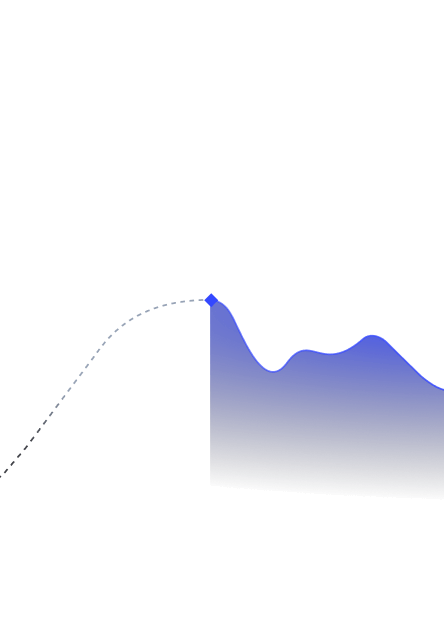
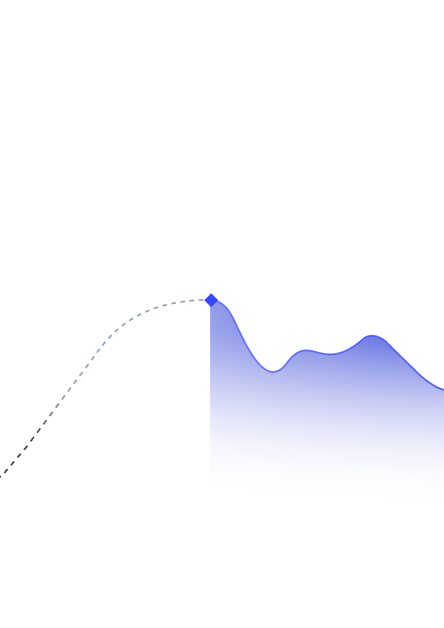

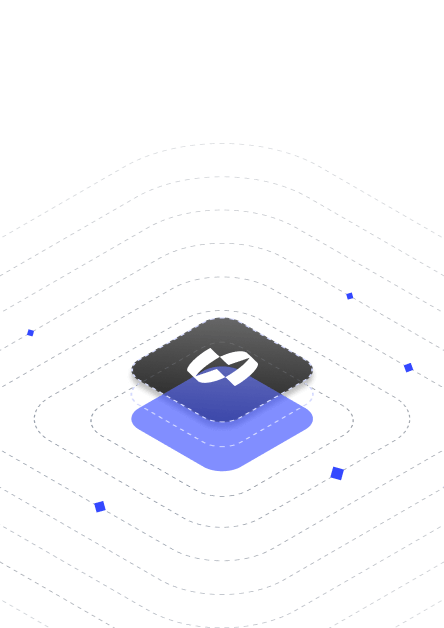
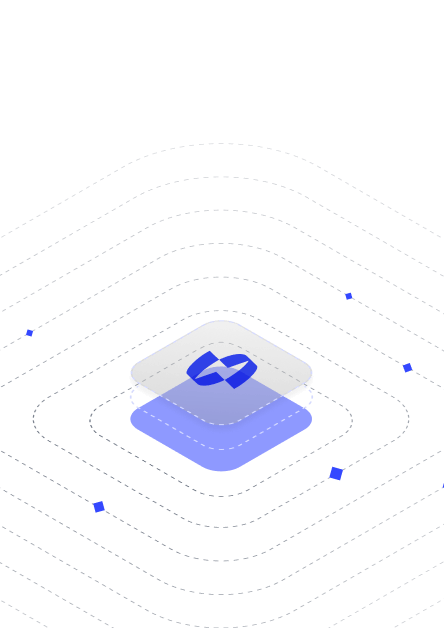







































.png)


